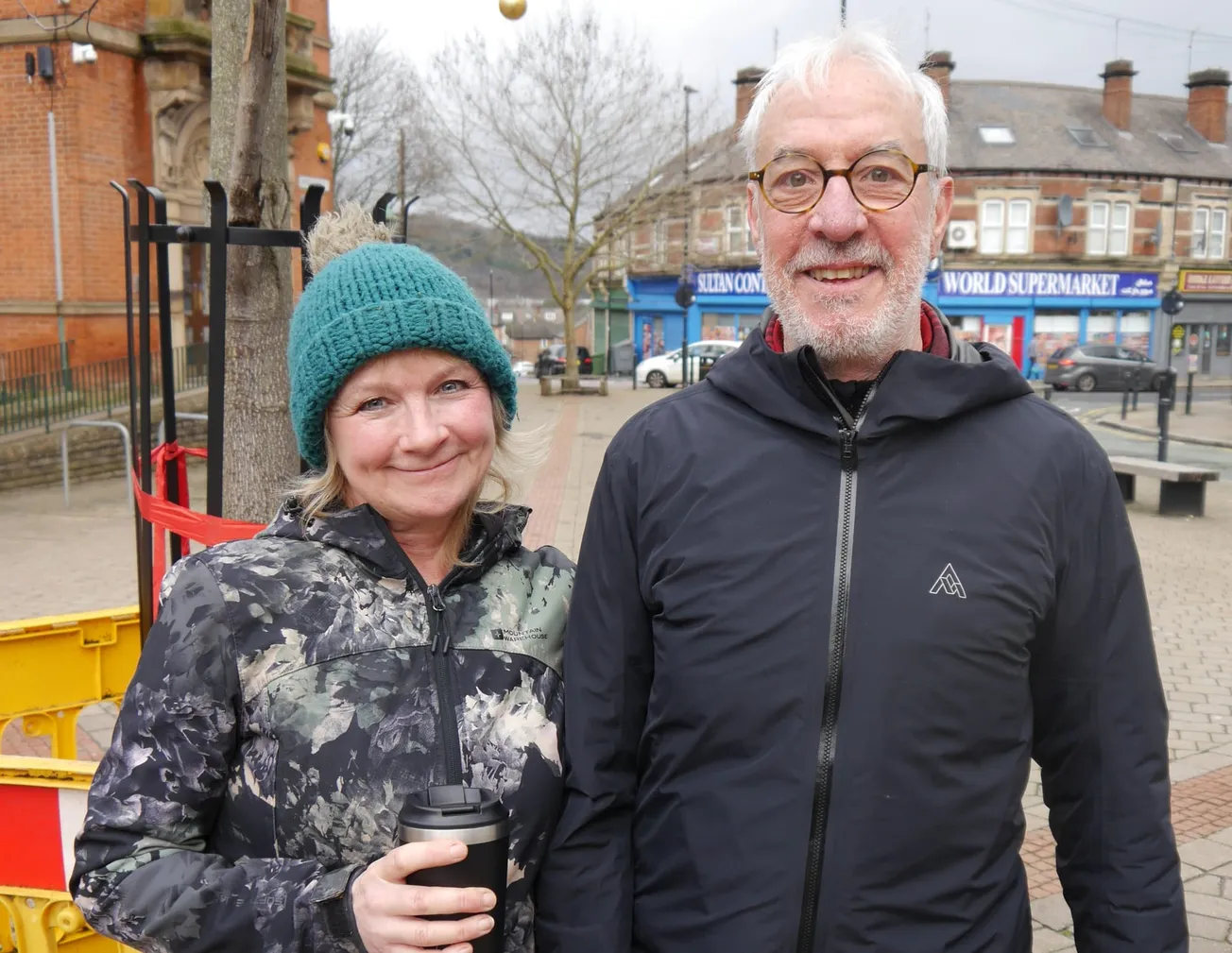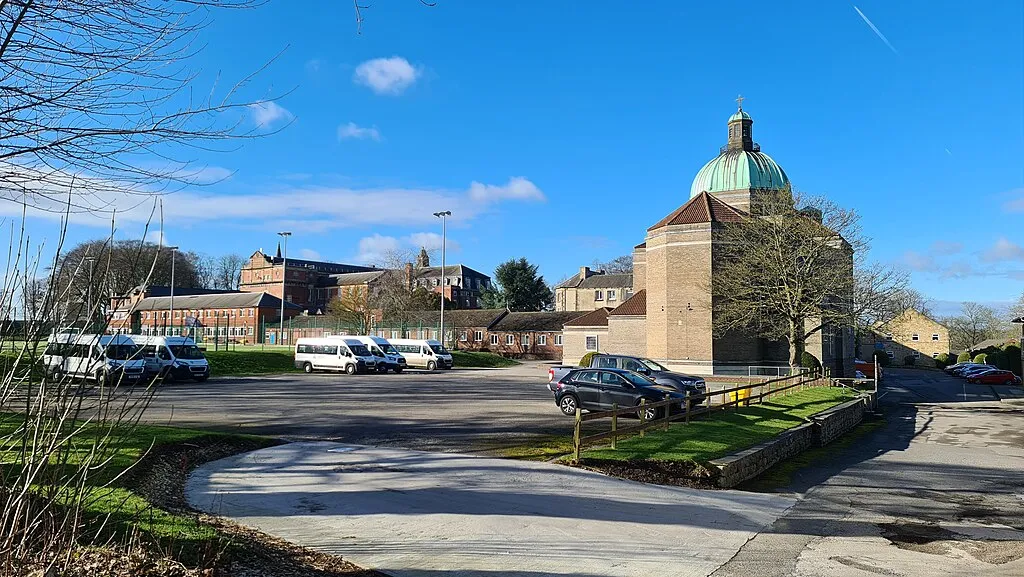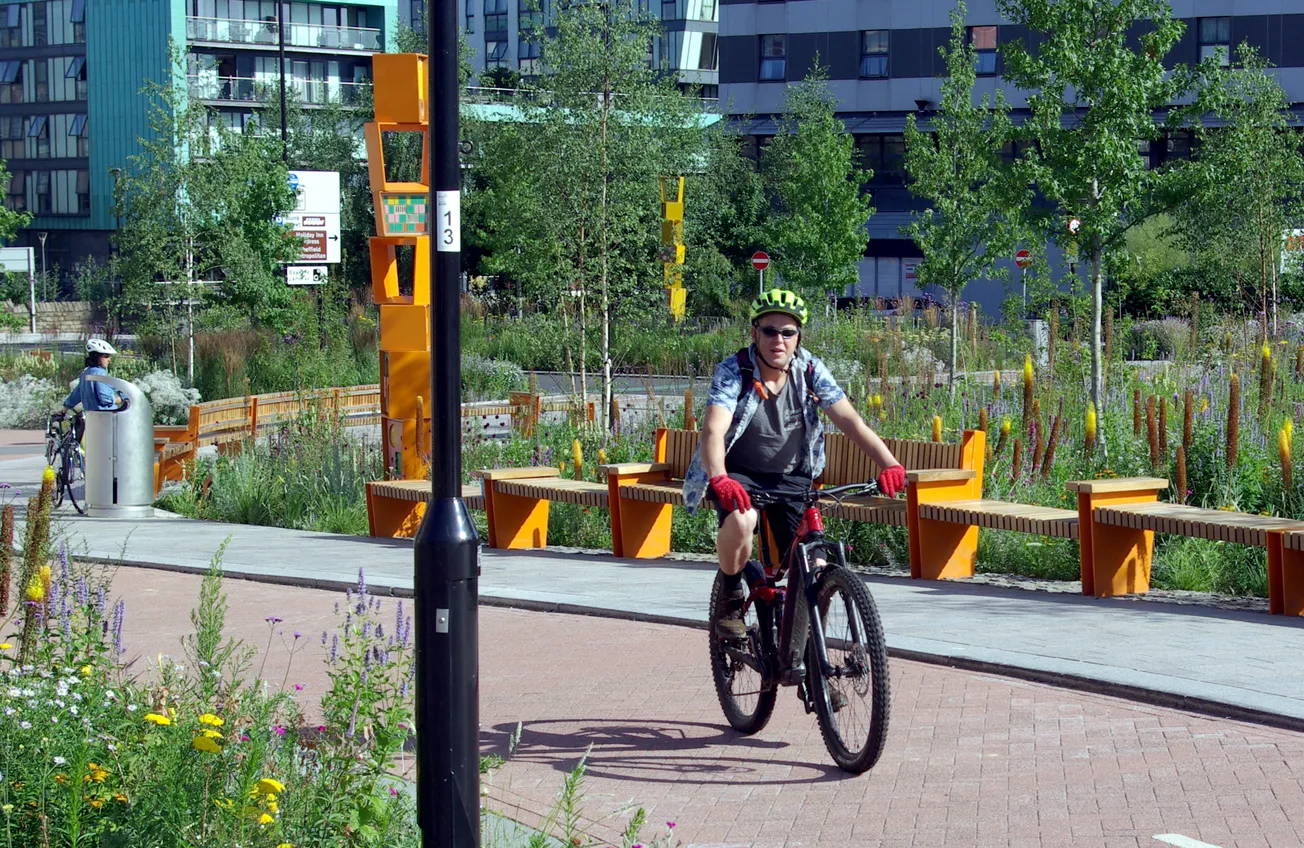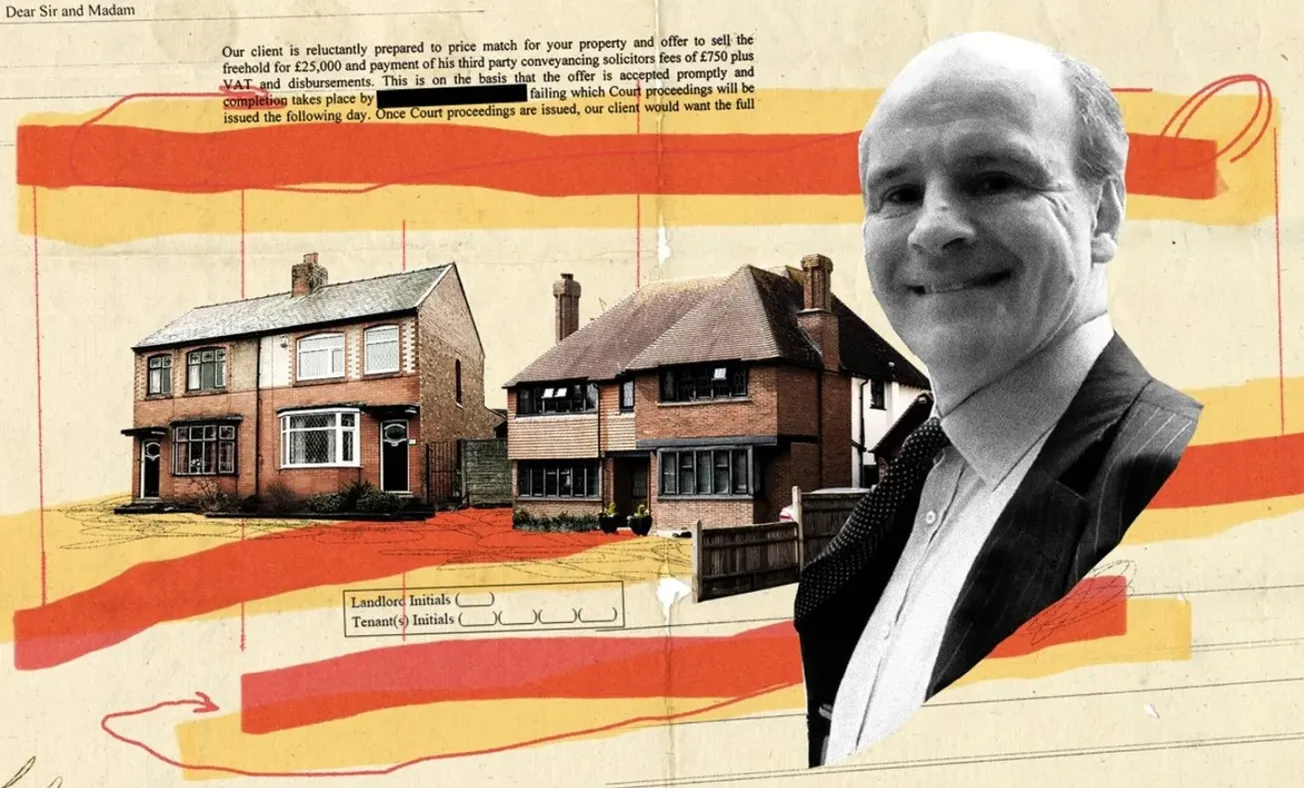In 1963, siblings Marie and Stephen Race moved onto Hyde Park Terrace. It was a utopian vision of communality: a long stretch of council maisonettes linked by first-storey walkways; long landings where the kids could play and the adults could sit out on plastic chairs, drinking cups of tea and relaying gossip.
Situated in a converted house on the estate, Alpha Tenant Management Co-op had an aim that was, in many ways, as revolutionary as the housing project it served: to give the community a stronger voice. Set up by Brian and Janet Manning in 1990, the co-op assumed responsibility for all day-to-day repairs for the estate’s 151 flats — except for heating and water, which remained in the council’s remit. In the office, tenants could sit with a cup of tea and biscuit and discuss their needs and wants for the estate. The advantage this gave its residents was obvious: they never had to worry about being placed on hold with a faceless housing officer. They could speak to someone who was likely already a friend or at least friendly acquaintance, and work out the problem together.
The founding principles of the co-op emphasised community. When new people moved into the estate, co-op members would personally greet them. Every summer, Stephen Race, who at this point ran his own minibus business, took groups of residents out to Scarborough, where the kids would run around on the beach and adults would walk around the Beamish.
In November, Alpha will fold, marking the end of one of the North’s last tenant management co-ops. The office on Hyde Park Walk will become just a house again, and responsibility for all repairs will now fall on Sanctuary Housing, who took over ownership of the estate from the council in 2007. Now, if tenants want something fixed, they have to dial a number, sit on hold and speak to a voice at the end of the phone.
Widespread disengagement means that Alpha no longer has the required six committee members attending meetings to meet quorum. In 2018, the co-op’s annual accounts recorded nine members on its committee, five in 2022 and just two last year. The work necessary to care for the estate has fallen to fewer and fewer residents, who find themselves increasingly strained and unable to attend to every single one of the myriad issues presented to them.
There are many on the estate who won’t mourn the loss of Alpha; those who insist the co-op has lost its way and is responsible for the decline of Hyde Park. Whether the estate materially improves under the management of Sanctuary Housing remains to be seen, but it’s clear for now, at least, that an arms length housing association cannot fix the thing that has actually broken at Hyde Park: the sense of community spirit.
It was this that sustained Alpha as an organisation. The co-op’s survival relied on members who enjoyed each other’s company, were willing to roll their sleeves up and put the work in, and who could navigate the complexities of working with councils and housing associations.
Marie recalls the trips to the seaside during Alpha’s heyday, and thinks about life on the estate now. “It were a good community then,” she tells me. “It isn’t now.”
‘How can I go and knock on someone’s door because someone has reported them?’
Wendy Laycock, 66, and Leslie Sawtell, 72, are among Alpha’s last remaining committee members. Their positions are voluntary, and they describe their roles as “looking after the office and answering the phones”, which until recently used to ring around 50 times a day. Linda Taylor has a paid-up role as Alpha’s office manager — she’s the one who “looks after repairs”, gets gardeners to cut the grass and bushes, organises the staircases and corridors being cleaned and generally keeps things tidy — and will lose her job when it closes.
In recent years, few others have been as keen to secure a seat at the table. Wendy, Leslie and Linda all blame the changing dynamics of the estate — specifically the younger generation, who are less inclined to give up their free time towards sorting maintenance jobs and liaising with gardeners. “When I joined, some people were younger, but the majority of people had been on the committee since it started,” Wendy says. “None of them retired until they were in their 80s or due to illness. The younger generation of today don’t perhaps have the same morals.”
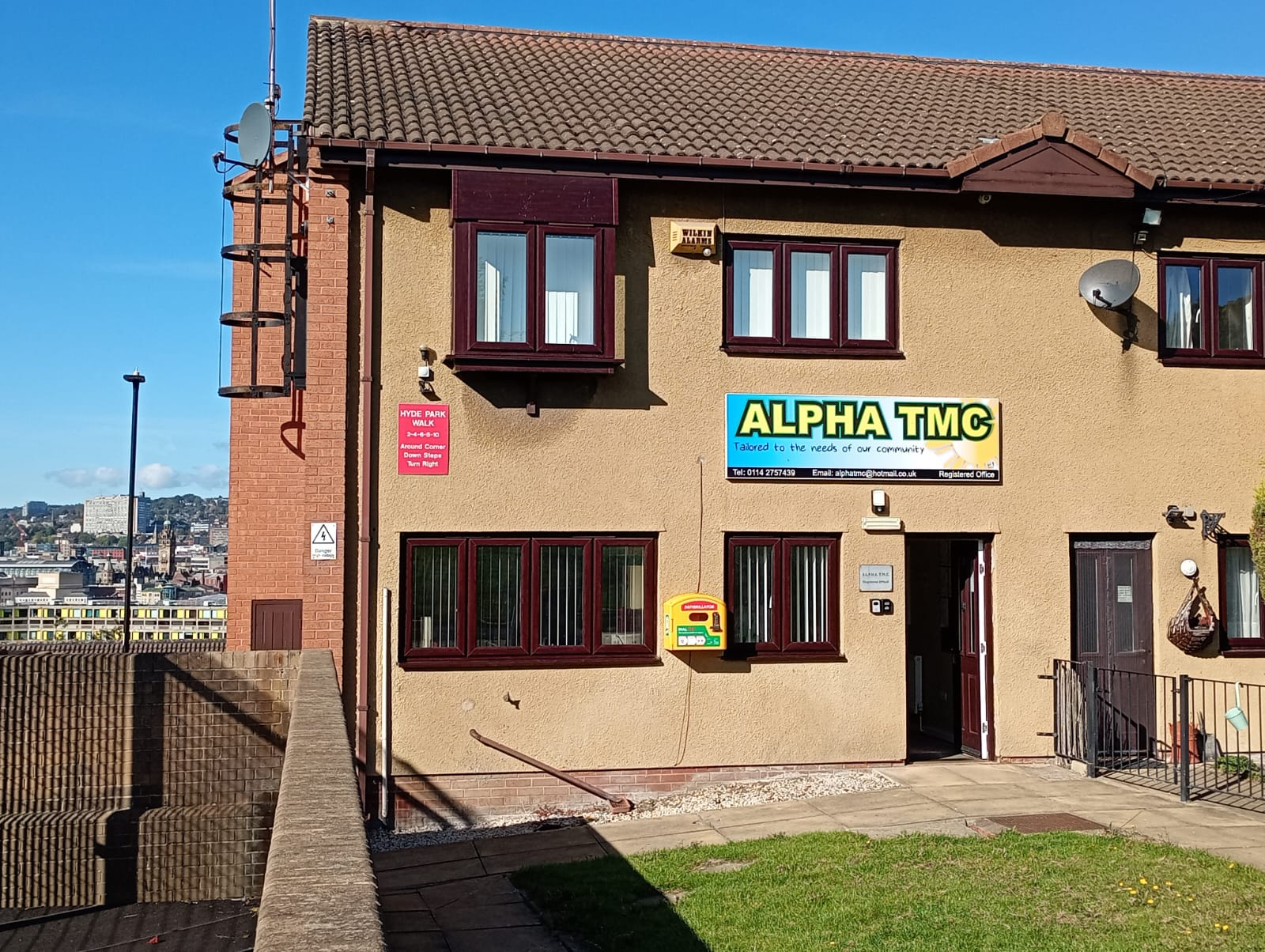
Marie, by far the longest term resident I spoke to, noticed Alpha’s membership dropping off in recent years. She says she would’ve loved to rejoin the committee, although due to her caring responsibilities to her husband Mick, who suffers with Alzheimer’s, she was unable to join the meetings: “I’d love to go back on, but I just can’t leave my husband alone in the house.”
Leslie, who has sat on the committee for over a decade, was already itching to retire even before the co-op’s closure. By her own admission, she has little interest or knowledge in bookkeeping and admin, and has only stayed on as she “was talked into it”. Even if Alpha survived beyond this year, she says, she would have stepped down.
Being on the committee is hard work. One male resident, who wishes to remain anonymous, recalls people “coming to my door at 10 o’clock at night” with various grievances. “Since Covid-19, people have become so demanding,” he says. “You’ve got 80% good tenants on here and then 20% are people who should have been kicked out of this estate years ago, but Sanctuary do nothing. We’ve had people being racist, victimising other tenants, and that’s been going on for two or three years.”
Equally frustrating were some of his fellow committee members, who — excluding Leslie and Wendy — he describes as “useless and only in it for their own gain”. He alleges that some have only been interested in joining Alpha to attempt to get personal favours, claiming one committee member was moved from a two-bed maisonette to a three-bed, which usually would not be allowed for someone with just one child. (Given that Marie tells me that she and her husband, Mick, live in a three bed maisonette on their own, I suspect these rules are more lax than my anonymous friend is letting on).
He stepped down for his mental health two years ago, although he admits he attempted to rejoin last year but was unable to because his application form went missing. Conspiratorially, he suggests that his nemesis must have thrown it away. “It were put in bin, that was Linda,” he insists.
Aside from a brief phone call, Linda declined to speak for this article, saying she is “legally not allowed to do so”. When asked to explain further, she vaguely referred to the transfer of management responsibilities from Alpha to Sanctuary. As such, I never find out the intricacies of this personal beef between Linda and this anonymous resident (and whether or not she threw his application form in the bin), though Leslie confirms they had an astronomical falling out a few years ago and now, too wounded by past slights, refuse to be in the same room.
Wendy, who has short grey hair and a raspy voice, speaks warmly about them both as individuals, saying the anonymous resident was excellent with the estate’s elderly residents. She’s also defensive of Linda, who she says has “put up with abuse” from residents who don’t like her, because she won’t approve work they’d like done to their property or because she’s told them off for doing something. “People tell us we’re not good enough to be running this office, but we’re trying our best,” she says.
Not that the early days of Alpha weren’t without their occasional moments of friction. Marie was treasurer of the co-op in the first few years of its life, but left over a petty argument with another member about whether or not she could use spare change to buy teabags, coffee, sugar, sweetener and milk for committee members. The disagreement became nasty, and she quit on the spot. Marie says she felt vilified — but in later years, when that member became bedridden with illness, she offered to do his Christmas shopping for him. “It’s the sort of person I am,” she says. “I can’t say no to anybody when they need owt.”
Leslie, who can be found in Alpha’s office on Tuesdays, Wednesdays and Thursdays — she tells me that Linda doesn’t like to be there alone, in case she receives abuse from residents — says this spirit of helping the community has continued. “Certain people have got mental things and, when they have breakdowns, they come here and we can somehow calm them down,” she says.
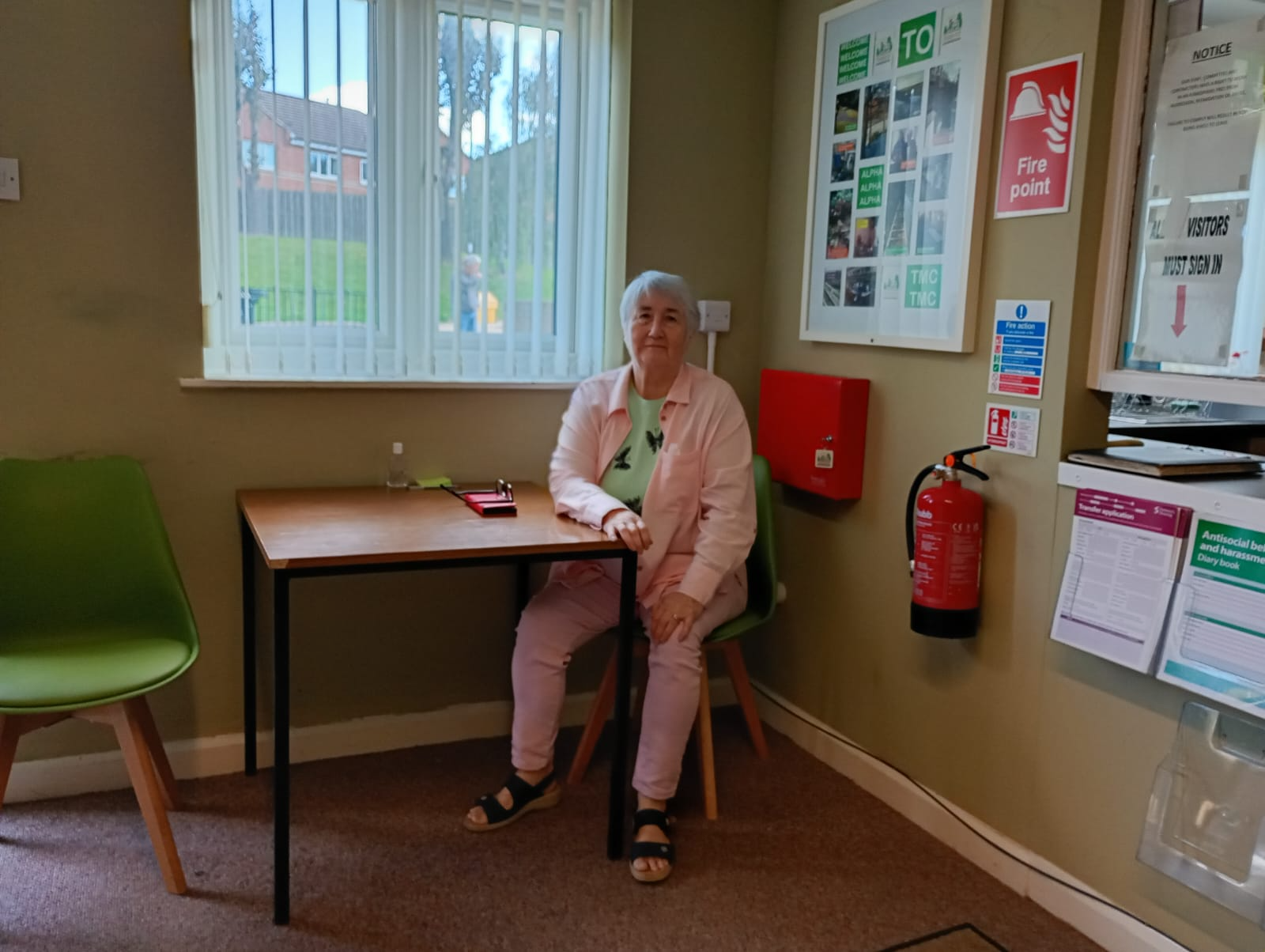
In her view, one thing that has made the job unnecessarily difficult is Sanctuary’s insistence that the committee should be responsible for responding to antisocial behaviour complaints, something that the council were happy to take on themselves when they owned the estate. “When there’s antisocial behaviour, they’re saying we should police it, but we shouldn’t,” she tells me. It’s clearly very awkward to be expected to confront your neighbours when they’ve done something wrong.
For their part, Sanctuary insists they have “worked closely with Alpha Tenant Management Co-Operative since 2007” and supported its work. With the co-op now coming to an end, they say they will “ensure the estate’s full transition into our management causes as little disruption as possible, and that any ongoing issues are addressed and resolved.”
In 2024, the Housing Ombudsman published a report on landlords failing to deal with antisocial behaviour, which referenced a particularly shocking case on the Hyde Park estate in 2023. It referred to a woman who was threatened with a gun by one of her neighbours. The report said that she had been complaining about him for eight months but, because the estate is managed by a tenants’ association who were also petrified of him, nothing was done. When the neighbour found out she’d reported him, it only made things worse. The ombudsman found that Sanctuary had refused to step in even when asked by the tenants’ association and after police got involved.
In a statement at the time, Sanctuary apologised, saying “we fell short of the standards our customers deserve and we have apologised to the affected resident for the poor service received” and said “we are committed to learning lessons arising from complaints and using them to help us improve”. Leslie recalls the incident with painful clarity, pinpointing this as the moment where “the breakdown of communication started”. She recalls speaking to a housing officer from Sanctuary who didn’t seem to understand how Alpha operated, and seemed to find them awkward to deal with. “They’d say they’d never come across an estate run by a committee.”
‘I think the estate will go to pieces’
Earlier this year, Sanctuary called a special annual general meeting to discuss closing Alpha down for good. It had become clear that the housing association and the tenants management organisation could no longer work together positively, nor could the tenants management organisation rally enough people to join their ranks.
That meeting came to nothing; only 30 residents attended, but the housing association required at least a third of the estate’s residents there to make a decision. A second meeting was called on the 29 July, and Sanctuary issued an instruction: regardless of how many people attended, the majority vote would decide the future of the co-op.
When it came to the day of the meeting, only 13 people turned up. 12 people in the room voted for Alpha to close. Wendy recognised many of them as tenants who were aggrieved that work they wanted done on their homes wasn’t approved by Linda.
“I was the only one with my hand up for it to stay open,” Wendy says. She, Leslie and Linda all privately nursed a suspicion that Sanctuary wanted to shut it down, but were afraid to pull the plug themselves. “Once this office is gone, people will realise what was done from here. We do a lot of things no other estate does.”
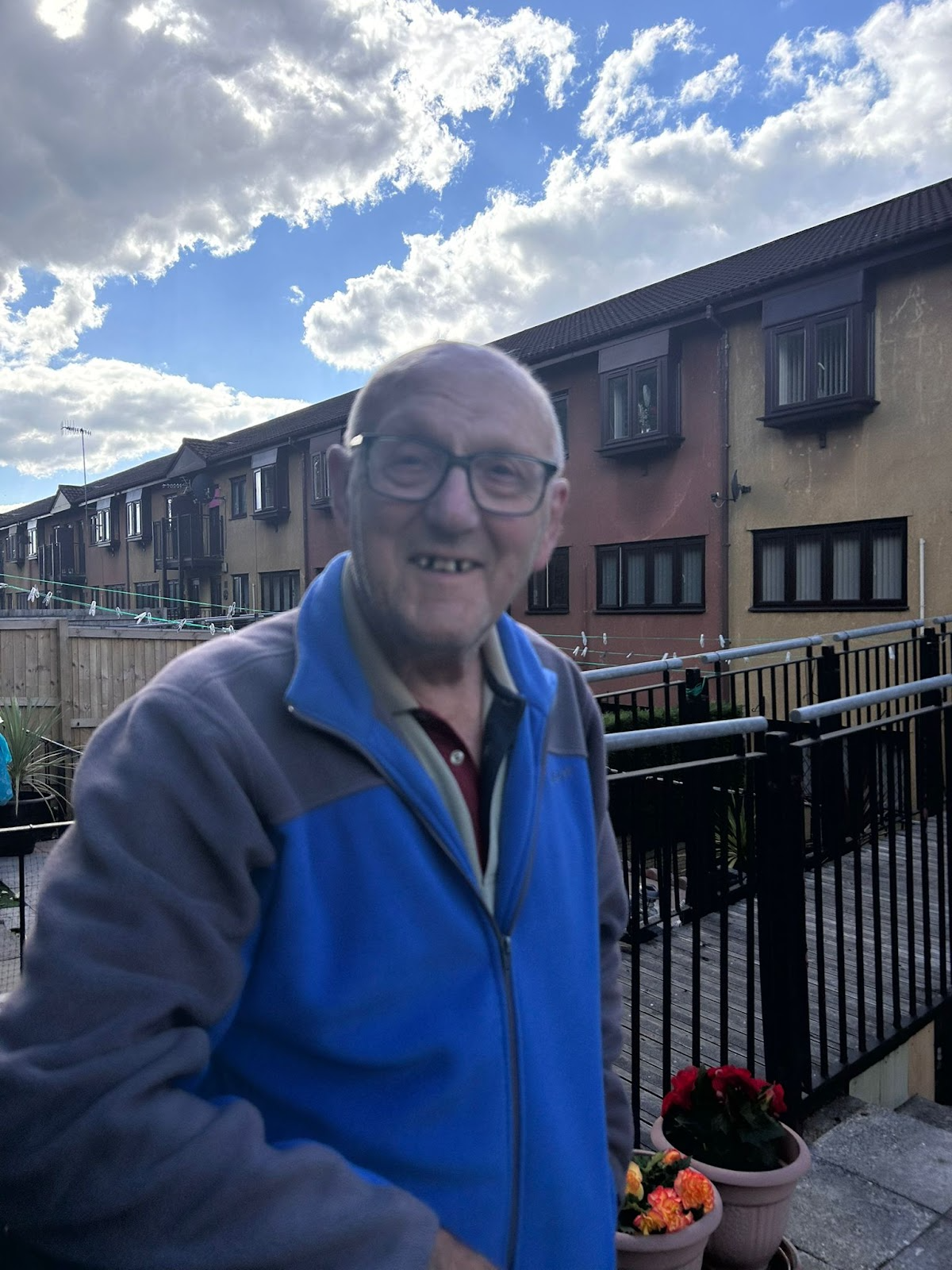
On a warm autumn day, I spend some time walking around the estate to sample the feelings of the residents. Two women sitting at the breakfast table with their front door open say they didn’t vote in the meeting, but that they’re happy Alpha is going. “They never pick rubbish up, it’s a right mess and full of rats.” On the adjacent street, a man walks past. He’s also happy to bid Alpha goodbye, and points to a wall with peeling paint by way of explanation. “Look at the state of it, they don’t do what they ought to. It’s all falling to bits.”
Charles, 87, was on holiday at the time of the meeting, but says that if he were there, he would have voted for Alpha to stay. “There’s always somebody you can go to,” he says. He says that the estate isn’t what it used to be but doesn’t think it’s Alpha’s fault. When I ask how it’s changed, he mentions “foreigners” moving in, spitting out the word as though it’s leaving a bad taste in the mouth.
A middle aged blonde woman asks me not to name her, as “you know what it’s like on a small estate, people talk a lot”. In our conversation, she defends Alpha. “It’s very convenient if we need a repair doing, you can just phone Linda and get it done. I think the estate will go to pieces.”
Marie has little sympathy for those who are upset that Alpha is going to fold — ultimately, it was only Wendy who turned up to fight for it to stay. “A few people who I’ve spoke to are sorry to see it go, they don’t want it to go,” she says. “But they should’ve been at the meeting, to have the say on the votes, shouldn’t they? It’s no use crying now over spilled milk.”
This story was published by The Tribune, an email newsletter which sends out high quality journalism about Sheffield to 32,000 readers. Our team of independent reporters and editors bring you important investigations, great local writing and useful recommendations about the city. You can join for free by hitting that button below.
If you’d like to sponsor editions of The Tribune and reach over 30,000 readers, you can get in touch at grace@millmediaco.uk or visit our advertising page below for more information




